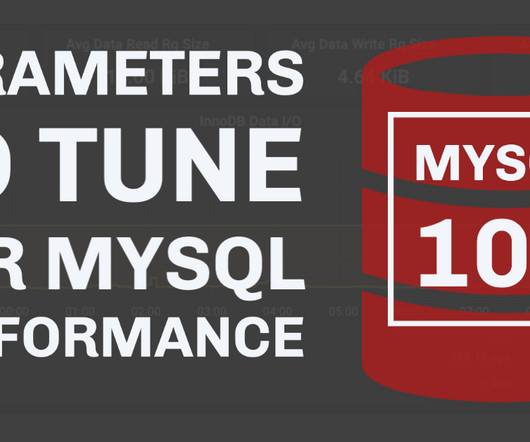MySQL Performance Tuning 101: Key Tips to Improve MySQL Database Performance
Percona
SEPTEMBER 1, 2023
Scalability As your data volume and user base expand, a finely tuned database can seamlessly accommodate increased workloads without compromising performance. This scalability ensures that your applications can grow in tandem with your business or user demands, maintaining a high level of operational efficiency.











Let's personalize your content